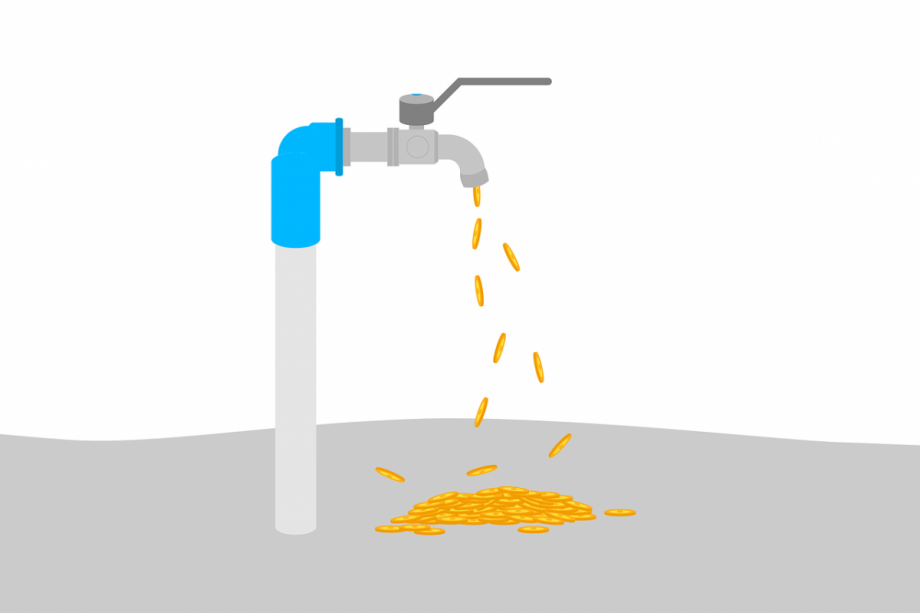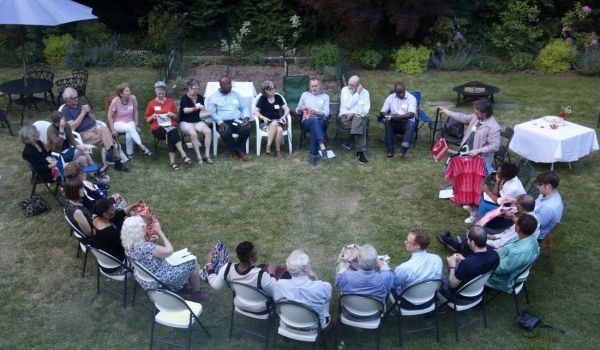After launching a successful online training platform for university academics, Kerry Ann Rockquemore wanted to invest in other businesses started by women and nonbinary entrepreneurs — but she didn’t know where to start. “I never had an investor. So, I didn’t know how it worked,” Rockquemore says.
Enter Pipeline Angels, founded in 2011 by Natalia Oberti Noguera. The membership organization is aiming, according to its site, to change angel investing by “creating capital for women and nonbinary femme social entrepreneurs” and getting investors to rethink where they put their money.
“I was interested in … sharing another way you can make an impact with your money … by investing in women-led, femme-led for-profit social ventures,” Oberti Noguera says.
Rockquemore joined Pipeline Angels and, in 2018, participated in an angel investing boot camp, which requires a commitment of two days a month over a four-month period.
Forbes reported that in 2016, women entrepreneurs received $1.46 billion in venture capital, while startups with male founders received $58.2 billion. According to Fundable, startup entrepreneurs receive an average of $23,000 from friends and family. However, due to a dramatic racial disparity in wealth and assets — white families have 20 times more wealth than black families and 18 times more than Latino families — not all entrepreneurs have equal access to this kind of money. This difference also affects everything from the personal savings an entrepreneur can tap to launch a business, to the cushion available to cope with the financial risks associated with a startup.
Pipeline Angels addresses the unconscious biases that influence who investors see as viable candidates for their capital. Rockquemore says that while she had participated in unconscious bias workshops in the past, her experience at the Pipeline Angels boot camp revealed new information.
“I overweighted people’s education credentials. I overweighted extroverts because I really like entrepreneurs who are full of energy and are excited about their idea,” Rockquemore says, explaining that while there are tangible criteria that one considers when making an investment decision, there are also a number of subjective criteria. “A lot of people are looking for themselves, and, of course, if most angel investors are white men, and they are unconsciously looking for themselves, we should not be surprised that most of the investment money goes to white men.”
She believes the bias training is a critical component of Pipeline Angels’ approach.
“It’s not shaming. It doesn’t make you bad. It just is, right? And if you can acknowledge it and become aware and learn about how it might be shaping your decision-making, what ends up happening is, once we re-ranked the companies, it was a totally different ranking,” Rockquemore says of the boot camp exercise. She says she realized how she could have passed on an outstanding investment opportunity simply because the entrepreneur “wasn’t like me.”
For Oberti Noguera, the rubber hits the road when investments are actually made. “You’re not going to change the ecosystem unless you write a check,” she says. Pipeline Angels holds “pitch summits” where founders can bring proposals to a panel of potential angel investors.
The panels, says Rockquemore, represent much more than cash. “When we make a collective investment, the entrepreneur not only gets the capital, they get a whole squad of angels. We have different backgrounds and expertise. That part is equally if not more important than the actual capital,” she says.
Chana Ginelle Ewing is one beneficiary of this “squad.” The Brooklyn-based entrepreneur pitched her business, Geenie, a personal growth platform for black women, at Pipeline Angels’ Charlotte summit. Along with hearing a range of perspectives from investors, Ewing was accepted into the Pipeline Angels portfolio. “I have a list of people I want to reach out to because of their specific expertise and how I can apply their expertise to my business,” Ewing says of accessing this new network. “What do their other portfolio companies look like? Are those other companies folks that could be potential partners?”
According to Pipeline Angels, over 300 members have graduated from the angel investing boot camp and they have invested more than $5 million in 50-plus companies thanks to the pitch summits. Oberti Noguera stresses that they aim to help members “do well while doing good,” and that’s one reason they focus on businesses that want to make positive social impact.
Rockquemore has invested in six companies since joining. One is Paladin, an online platform that helps lawyers sign up for pro bono work like assisting immigrant families or low-income people fighting evictions. Rockquemore credits Pipeline Angels with setting up a system that demystifies the investing process. “For my whole life, everything I’ve done, I’ve been the only or one of few,” Rockquemore says. Being an outlier among a group of white men brings challenges, she says, which is why she sees Pipeline Angels as a “welcoming space” for women, particularly women of color, and nonbinary femmes to “get in there” and invest.
“It takes somebody to demystify it and create the kind of container where you can learn,” Rockquemore says. “And once you know, it’s not that deep. It’s not rocket science.”

Zoe Sullivan is a multimedia journalist and visual artist with experience on the U.S. Gulf Coast, Argentina, Brazil, and Kenya. Her radio work has appeared on outlets such as BBC, Marketplace, Radio France International, Free Speech Radio News and DW. Her writing has appeared on outlets such as The Guardian, Al Jazeera America and The Crisis.
Follow Zoe .(JavaScript must be enabled to view this email address)









